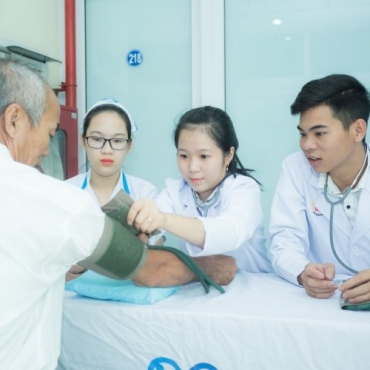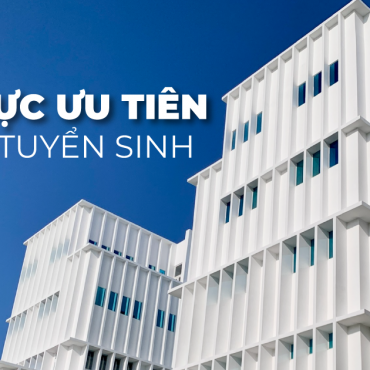Contact Admission
International Collaboration
Florence Nightingale: The Mother of Modern Nursing and an Endless Source of Inspiration
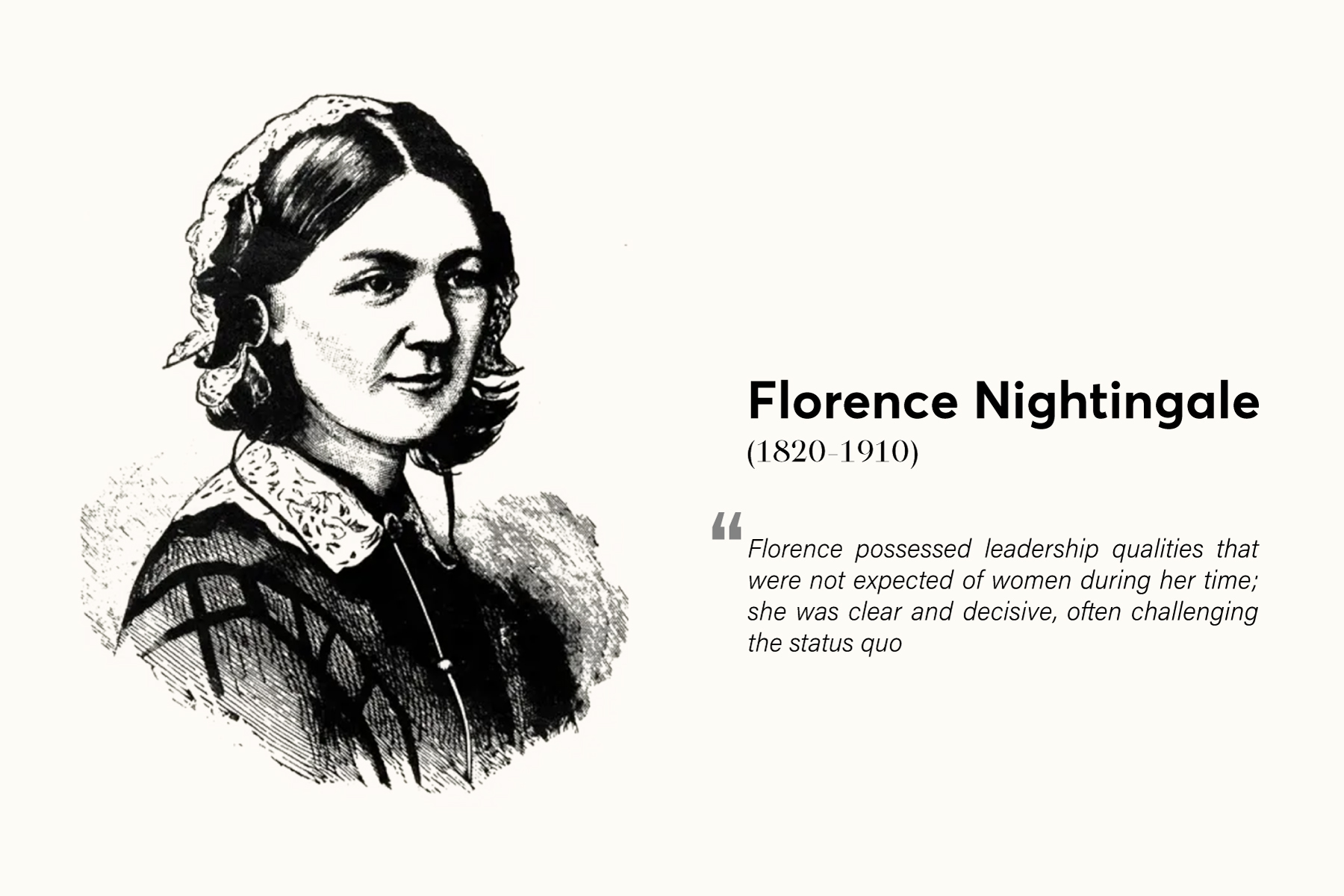
Florence Nightingale (1820-1910), often known as "The Lady with the Lamp" was a British nurse, social reformer, and statistician, widely recognized as the founder of modern nursing. She was born on May 12, 1820, in Florence, Italy, and was named after the city of her birth. Though she came from a wealthy and upper-class English family, where she was educated at home and expected to marry early, Florence believed she received a "calling" from God in her teenage years to help the poor and sick.
When Florence expressed her desire to become a nurse, her parents disapproved. At that time in mid-19th century England, nursing was not a respected profession and was considered menial labor. However, Florence remained resolute in her decision, refusing marriage and pursuing nursing. She studied at a hospital training school in Germany and later received further training in Paris. By the age of 33, she had established a reputation within the nursing community and became the director of a hospital in London.
The major turning point in her career was the Crimean War (which began in 1853). When the war broke out in 1854, the British army was unprepared to handle the large number of sick and wounded soldiers. The lack of medical supplies, overcrowding, and poor sanitation led to many deaths. The press began reporting on the dire conditions of military healthcare.
The Secretary of War, Sidney Herbert, requested that Nightingale lead a team of nurses to care for the wounded soldiers. She agreed and, with 38 other nurses, traveled to the British army camp near Constantinople (now Istanbul) in November 1854. Upon arrival, the conditions were appalling: the hospital was built over a cesspit that contaminated the water supply, patients lay on floors covered in their own excrement, rats and bugs ran rampant, and basic supplies like bandages and soap were scarce. Mortality rates were extremely high, primarily due to infectious diseases like typhus and cholera, rather than battle wounds.
Nightingale and her team quickly took action. They brought in supplies, nutritious food, and focused on improving sanitation and cleanliness within the hospital. Nightingale even had the least ill patients scrub the entire hospital. She emphasized frequent handwashing. The results were remarkable: within six months, the death rate significantly dropped. Different sources report specific figures, such as from 40% to 2%, 42.7% to 2.2%, or from 60% down to 42% and eventually to 2.2%.
Nightingale became known for carrying a lamp and checking on soldiers at night, earning her the nickname "The Lady with the Lamp." The soldiers were deeply moved and comforted by her boundless compassion.
Beyond improving sanitation, Nightingale introduced new patient services, such as a special kitchen to prepare dietary meals, laundry services for clean linens, and even established a classroom and library to stimulate patients intellectually and provide entertainment. Based on her observations in Crimea, she wrote detailed reports, analyzing her experiences and proposing reforms for other military hospitals. These reports led to the formation of the Royal Commission on the Health of the Army.
Florence Nightingale was also a gifted statistician. She used data and figures to clearly present the health conditions in the army and demonstrate the impact of interventions. She is credited with creating one of the earliest forms of the pie chart, known as the "Nightingale Rose Diagram," to visually and effectively communicate data. She was the first woman elected to the Royal Statistical Society.
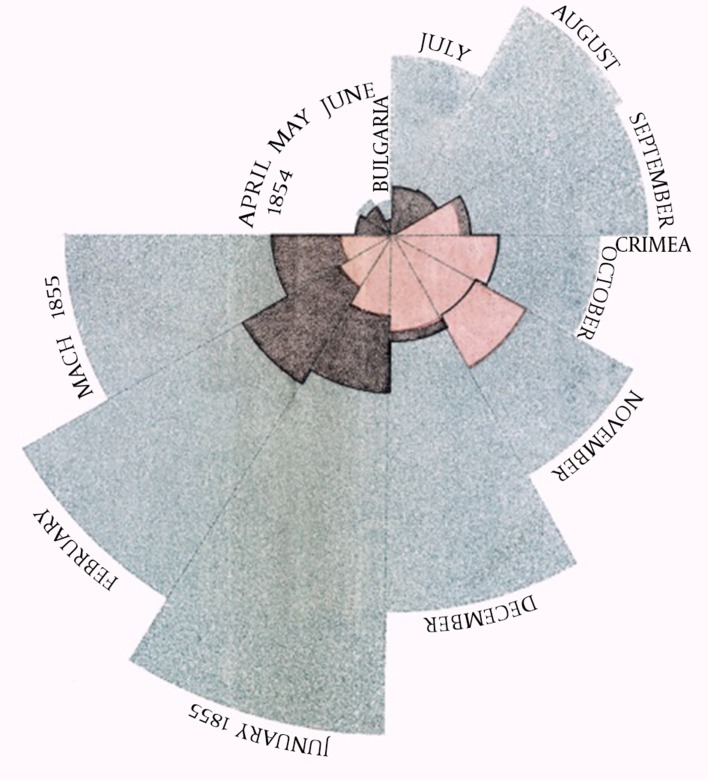
A Polar-Area Diagram, Invented by Florence Nightingale
(Image source: https://pmc.ncbi.nlm.nih.gov/articles/PMC4557413)
After returning from war, Nightingale continued her efforts to improve hospital conditions. She used funds from a public recognition fund to establish the Nightingale Training School for Nurses at St. Thomas' Hospital in 1860. This is considered the first professional nursing school in the world. The school's establishment elevated the profession of nursing, making it a respected career. Thanks to her influence, even upper-class women began enrolling in nursing schools.
Nightingale strongly advocated for disease prevention, mental health, health education, and public health. She believed healthcare was a human right. Despite being bedridden later in life due to "Crimean fever," she continued working, writing books (including "Notes on Nursing"), and advocating for safe nursing practices and medical reforms. She authored over 150 books, papers, and reports on health issues and was consulted on field hospital management during the American Civil War.
Florence Nightingale's legacy endures to this day. Two years after her death on August 13, 1910, the International Red Cross established the Florence Nightingale Medal to honor outstanding nurses. International Nurses Day has been celebrated on her birthday, May 12, since 1965. In the United States, graduating nurses often recite the Nightingale Pledge, an ethical oath similar to the Hippocratic Oath. In response to the COVID-19 pandemic in 2020, temporary hospitals in the UK were named "NHS Nightingale Hospitals."
The Legacy and Significance of Florence Nightingale's Work in Modern Nursing:
-
Compassion and dedication: Despite poor conditions and opposition from doctors, Nightingale and her team tirelessly cared for and comforted soldiers. Her nightly rounds with a lamp became a powerful symbol of unwavering care. Her compassionate presence brought immense comfort to the suffering.
-
Courage to challenge the status quo: She defied societal and family expectations to pursue nursing. She also boldly criticized the appalling hospital conditions and advocated for change, encouraging modern nurses to speak up for patients and quality care.
-
Importance of hygiene and environment: Her work in Crimea powerfully demonstrated that cleanliness and sanitation could save lives. This principle remains vital today, especially during pandemics like COVID-19. She emphasized, "The very first requirement in a hospital is that it should do the sick no harm."
-
Use of data to improve care: Nightingale collected, analyzed, and presented data to prove the effectiveness of interventions and advocate for reforms. She pioneered evidence-based decision-making in healthcare, inspiring modern nurses to embrace research and data.
-
Professionalization of nursing: By founding a training school and writing educational texts, she transformed nursing from an undervalued job into a respected profession. She established principles on trust, patient confidentiality, communication skills, and observation—reminding nurses of the responsibilities and qualities required in their work.
-
Holistic care and healthy environments: Nightingale focused not only on treatment but also on patients' surroundings (light, fresh air, quiet) and their psychological and social well-being. She understood that "apprehension, uncertainty, waiting, expectation, fear of surprise do a patient more harm than any exertion."
-
Persistence and relentless advocacy: Even when severely ill and bedridden, Nightingale continued her work and health advocacy. Her perseverance and dedication serve as a powerful example for nurses facing challenges in their profession.
Florence Nightingale passed away in 1910 at the age of 90, but she remains a global icon of compassion, courage, and integrity. Her pioneering work laid the foundation for modern nursing, transforming it into a respected and essential profession. Her life and legacy continue to inspire thousands of men and women around the world to dedicate themselves to caring for the sick and wounded. Today’s nurses, hailed as heroes during global health crises like the COVID-19 pandemic, are truly walking in the footsteps of this extraordinary woman.
She is remembered as a visionary who championed the use of facts over opinion in the fight against illness and death. Her legacy of patient-centered and evidence-based care remains as relevant as ever.
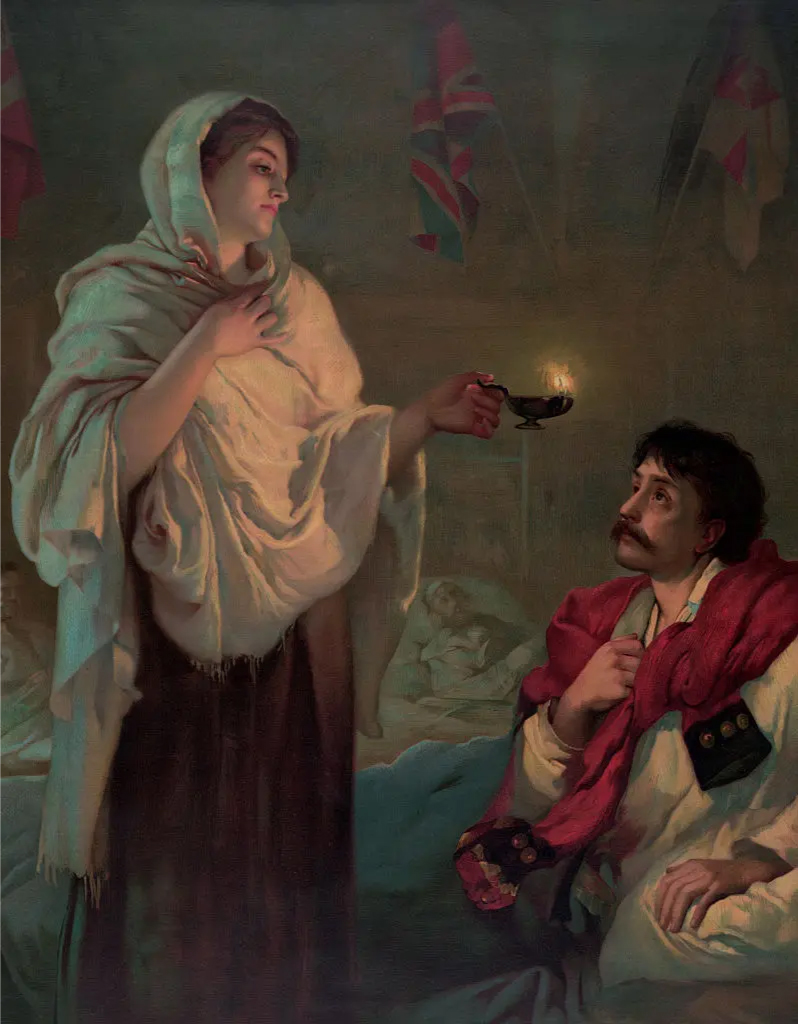
Bản in xuất bản năm 1891. Dựa trên bức tranh của Henrietta Rae (phu nhân Normand). Ảnh chụp bởi VCG Wilson — Corbis qua Getty Images.
Source:
- [1] National Women's History Museum
- [2] History.com
- [3] British Red Cross
- [4] PubMed Central
- [5] School of Nursing of Texas University
For furthur information:
- Programs
- Tuition and Fees
- How to Apply
- Facilities
- Activities & Experiences
- Student Life
- Follow us on Facebook
Contact us:
Admission Office:
- Mr. Nguyen Van Minh - Admission Office – Phan Chau Trinh University
- Address: 09 Nguyen Gia Thieu street, Dien Ban Dong ward - Da Nang city
- Tel: (+84235) 3 757 959 or +84.0981.559.255
- WhatsApp Number: +84.0981.559.255 or +84.0962.553.155
- Email: tuyensinh@pctu.edu.vn
- Fanpage: www.facebook.com/daihocphanchautrinh
Other admissions
- Who were the “Psychologists” of the past? ( 13:05 - 04/02/2026 )
- The demand for “mental rebuilding” is increasing, while human resources remain insufficient. ( 13:21 - 14/01/2026 )
- Nursing – The Silent Hearts on the Frontline of Life and Death ( 08:59 - 07/08/2025 )
- Quy chế tuyển sinh đại học của Trường Đại học Phan Châu Trinh ( 11:46 - 12/01/2023 )
- What is the priority object in enrollment ( 08:46 - 11/06/2022 )
- What is the priority object in enrollment ( 17:20 - 01/03/2021 )






